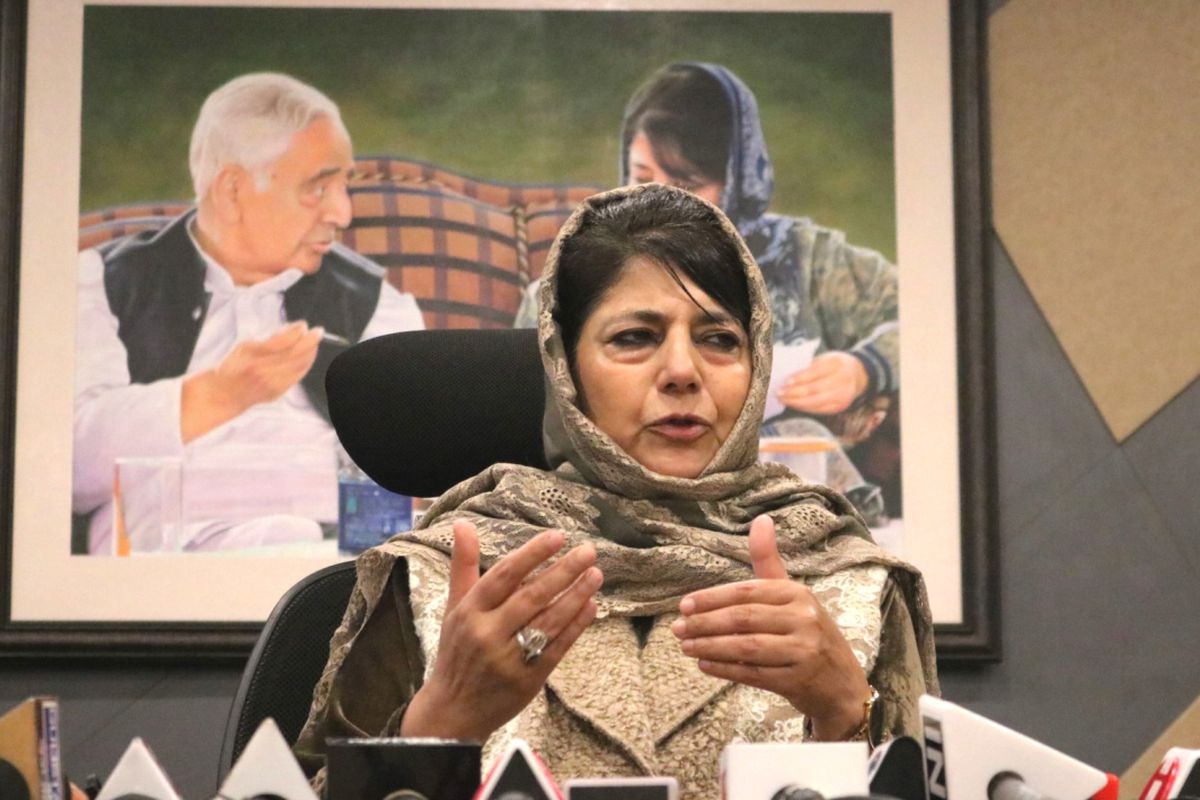SC asks states/UTs to decide on plea seeking to conduct yatras on poll awareness
The bench was told that such orders prohibit all kinds of assemblies, meetings and demonstrations during the duration of elections.
The Supreme Court, in its hearing on Thursday, also directed that ailing J-K CPI(M) leader Mohammed Yousuf Tarigami be shifted from Srinagar to AIIMS in Delhi for better treatment.

Mehbooba Mufti (File Photo: IANS)
As security restrictions are being gradually eased in the Valley, the Supreme Court on Thursday allowed the daughter of former Jammu and Kashmir Chief Minister Mehbooba Mufti — who is under house arrest since August 5 — to meet her in Srinagar.
The apex court has allowed Iltija to travel from Chennai to Srinagar to meet her mother Mehbooba Mufti in private.
The court, however, said that if Iltija wants to move in other parts of Srinagar, then it would be subject to prior permission from the concerned authorities if needed.
Advertisement
Mehbooba Mufti and another former CM Omar Abdullah are among 400 political leaders of the Valley, who are under detention since the abrogation of Article 370, that gave special status to Jammu and Kashmir.
Jammu and Kashmir was put under virtual curfew on 5 August when the Modi government scrapped the Article 370 and split the state into two union territories.
Jammu and Kashmir Chief Secretary, BVR Subrahmanyam had earlier said that detentions of individuals were made in accordance with the provisions of law to maintain law and order in the Valley.
Earlier last month, Iltija Mufti had written to Union Home Minister Amit Shah questioning the “illegal” detention of the valley’s political leaders since the revocation of Article 370.
“Today while the rest of the country celebrates India’s Independence Day, Kashmiris have been caged like animals and deprived of basic human rights,” she wrote.
The former chief minister’s daughter was also reportedly under detention.
“Kashmir is engulfed in clouds of darkness and I fear for the safety of its people including those who spoke up,” she stated in her letter to Amit Shah.
She further questioned for “being punished for speaking on behalf of Kashmiris whose voices have been smothered”.
“It’s suffocating and humiliating to be treated in this manner. I have to grovel for permission to allow my aged grandmother to visit her son. Is she also a potential threat?” she wrote.
Soon after the Centre’s Kashmir move, Mehbooba Mufti had said that the action will have “catastrophic consequences for the subcontinent.”
Mufti called the Centre’s intentions sinister and accused it of trying to change the demography of the only Muslim majority state in the country.
Meanwhile, the Supreme Court in its hearing on Thursday said that ailing J-K CPI(M) leader Mohammed Yousuf Tarigami shall be shifted from Srinagar to AIIMS in Delhi for better treatment.
The SC order came after Raju Ramchandran, lawyer appearing for CPI(M) leader Sitaram Yechury told the court that Tarigami’s security vehicles have been withdrawn.
Yechury’s habeas corpus petition had challenged the detention of Kashmir politician and party general secretary Mohammed Yousuf Tarigami.
Meanwhile, Yechury met the ailing party MLA in August after the Supreme Court allowed him to travel to Srinagar. The visit was a first by any Opposition leader to the state after the abrogation of Article 370.
The court further issued a notice to the Centre on the plea by Kashmir Times Executive Editor, Anuradha Bhasin, seeking a direction for relaxing restrictions on the internet, landline and other communication channels. The court, however, refused to pass any order today.
The Supreme Court will hear all the petitions related to the abrogation of Article 370 on September 16.
On August 28, the apex court said that a five-judge Constitution Bench will hear all the petitions related to the abrogation of Article 370, in the first week of October.
The Supreme Court is hearing around 10 petitions with most of them challenging the Centre’s decision revoking Article 370 while others are connected with the imposition of curfew and its consequences in the region.
Advertisement